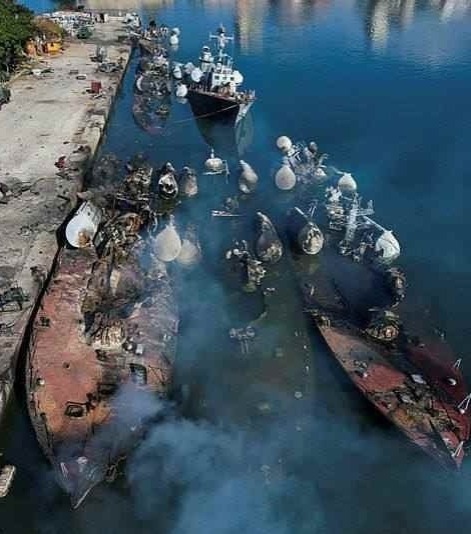WATCH: This is what Syria looks like after being pounded by Israeli airstrikes
The overnight operation, described by regional security sources as the most intensive yet, reportedly included some 200 airstrikes targeting military installations, airbases, and Republican Guard assets across Syria. Sources say the strikes have effectively neutralized the remnants of Syria's military capabilities.

Israeli forces conducted extensive airstrikes on Syrian military installations Tuesday while denying claims that its troops had pushed beyond the established buffer zone near the border, amid the power vacuum following President Assad's sudden departure.
The Israeli military spokesperson refuted reports of tank movements toward Damascus, stating that "IDF troops are stationed within the buffer zone, as stated in the past." This comes as regional sources claimed Israeli forces had reached Qatana, just kilometers from Damascus airport.
Meanwhile, Damascus is showing signs of returning to normalcy, with banks reopening Tuesday for the first time since Assad's flight. The capital's streets are again filled with traffic, construction workers, and street cleaners, marking a tentative return to routine amid the dramatic political transition.
In a significant diplomatic shift, UN envoy Geir Pedersen appeared to downplay the terrorist designation of Hayat Tahrir al-Sham (HTS), the former al-Qaeda affiliate now set to join Syria's transitional government. "The reality is that HTS and other armed groups have been sending good messages to the Syrian people... of unity, of inclusiveness," Pedersen said in Geneva.
The Israeli incursion has drawn sharp criticism from regional powers, with Saudi Arabia warning it could "ruin Syria's chances of restoring security." Israel maintains its actions are purely defensive, telling the UN Security Council it has taken "limited and temporary measures" solely to protect its security interests.
As Damascus faces a brand new reality, the enormous challenge of rebuilding a country devastated by 13 years of civil war looms large. The conflict has left cities in ruins, displaced millions, and severely weakened the economy through international sanctions.
Prime Minister Mohammed Jalali has agreed to transfer power to the Salvation Government, previously based in rebel-held northwest Syria. The handover process is expected to take several days, according to official statements.
Reuters contributed to this article.